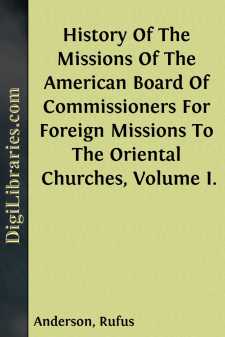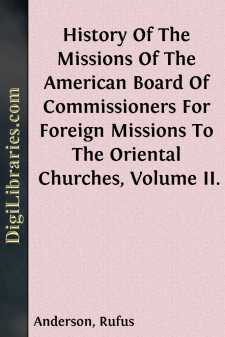Categories
- Antiques & Collectibles 13
- Architecture 36
- Art 48
- Bibles 22
- Biography & Autobiography 813
- Body, Mind & Spirit 142
- Business & Economics 28
- Children's Books 17
- Children's Fiction 14
- Computers 4
- Cooking 94
- Crafts & Hobbies 4
- Drama 346
- Education 46
- Family & Relationships 57
- Fiction 11829
- Games 19
- Gardening 17
- Health & Fitness 34
- History 1377
- House & Home 1
- Humor 147
- Juvenile Fiction 1873
- Juvenile Nonfiction 202
- Language Arts & Disciplines 88
- Law 16
- Literary Collections 686
- Literary Criticism 179
- Mathematics 13
- Medical 41
- Music 40
- Nature 179
- Non-Classifiable 1768
- Performing Arts 7
- Periodicals 1453
- Philosophy 64
- Photography 2
- Poetry 896
- Political Science 203
- Psychology 42
- Reference 154
- Religion 513
- Science 126
- Self-Help 84
- Social Science 81
- Sports & Recreation 34
- Study Aids 3
- Technology & Engineering 59
- Transportation 23
- Travel 463
- True Crime 29
History Of The Missions Of The American Board Of Commissioners For Foreign Missions To The Oriental Churches, Volume I.
by: Rufus Anderson
Categories:
Description:
Excerpt
PREFACE.
Missions to the Oriental Churches occupy a large space in the forty-nine volumes of the Missionary Herald, and in as many Annual Reports of the Board; and in view of the multitude of facts, from which selections must be made to do justice to the several missions, it will readily be seen, that their history cannot be compressed into a single volume. The Missions may be regarded as seven or eight in number; considering the Palestine and Syria missions as really but one, and the several Armenian missions as also one. The history of the Syria mission, in its connection with the American Board, covers a period of fifty-one years; that of the Nestorian, thirty-seven; that of the Greek mission, forty-three; of the Assyrian (as a separate mission), ten; of the Armenian mission, to the present time, forty; and of the Bulgarian, twelve. The mission to the Jews, extending through thirty years, was so intimately connected with these, as to demand a place in the series; and the facts scattered through half a century, illustrating the influence exerted on the Mohammedans, are such as to require a separate embodiment.
In writing the history, one of three methods was to be adopted; either to embrace all the missions in one continuous narrative; or to carry forward the narrative of each mission, separately and continuously, through its entire period; or, rejecting both these plans, to keep the narratives of the several missions distinct, but, by suitable alternations from one to another, to secure for the whole the substantial advantages of a contemporaneous history. The first could not be done satisfactorily, so long as the several missions have a separate existence in the minds of so many readers, and while so many feel a strong personal interest in what is said or omitted. Even on the plan adopted, so much must necessarily be omitted, or stated very briefly, as to endanger a feeling, that injustice has been done to some excellent missionaries. As for the second, the author had not the courage to undertake consecutive journeys through so many long periods; and he believed not a few of his readers would sympathize with him. If, however, any desire to read the history of any one mission through in course, the table of contents will make that easy. Each of the histories is complete, so far as it goes.
No attempt has been made to write a philosophical history of missions. The book of the Acts of the Apostles is not such a history, nor has one yet been written. The time has not come for that. There are not the necessary materials. The directors of missions, and missionaries themselves, have not yet come to a full practical agreement as to the principles that underlie the working of missions, nor as to the results to be accomplished by them; and it must be left to competent writers in the future,—when the whole subject shall be more generally and better understood,—after patiently examining the proceedings of missionary societies in America, England, Scotland, and Germany, to state and apply the principles that may be thus evolved....



